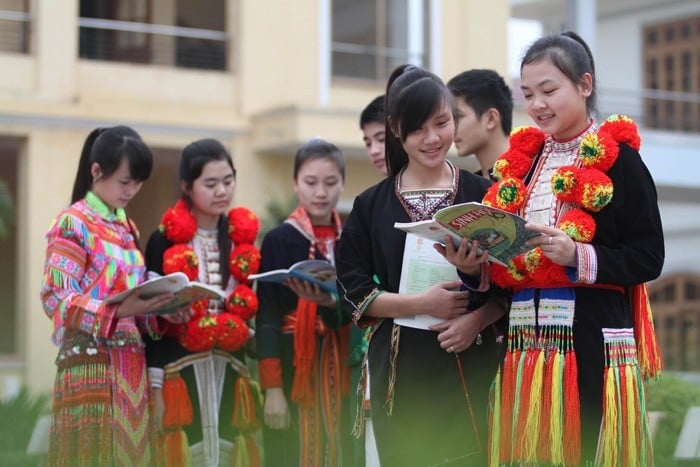 |
| Vietnam has made increasingly impressive achievements in ensuring the rights of ethnic minorities, thereby contributing to enhancing our country's reputation in implementing international commitments, especially the CERD Convention. (Source: CPV) |
Milestone 5
Established in 1965, the Convention on the Elimination of All Forms of Racial Discrimination (CERD) is a Convention that condemns racial discrimination and establishes obligations for member states to adopt policies to eliminate all forms of discrimination based on race, colour, descent, national or ethnic origin.
Vietnam joined the CERD Convention in 1982 and successfully defended the National Report on the implementation of the CERD Convention four times in 1983, 1993, 2000 and 2012. This is an opportunity for Vietnam to promote its achievements in protecting human rights in general and the policies of our Party and State towards ethnic minorities in particular.
Continuing the success of previous periods, Vietnam actively implemented the 5th National Report on the implementation of the CERD Convention. This is a report on legislative, administrative, judicial or other measures and the results of implementing those measures in the period 2013-2019 to protect human rights, combat acts of discrimination and racism focusing on ethnic minorities in Vietnam.
On this basis, Vietnam has internalized and supplemented many specific legal provisions to create a relatively complete legal corridor to ensure civil, political, economic, social and cultural rights of ethnic minorities.
Consistent policy
The Vietnamese Constitution dedicates Chapter II with 36 articles to directly and clearly regulating “human rights, basic rights and obligations of citizens”, including the rights of ethnic minorities with provisions on ensuring the rights of ethnic minorities.
From 2013 to 2019, of the 53 legal documents containing provisions to ensure the rights of ethnic minorities, 12 new laws were issued since 2012. Ensuring comprehensive economic, cultural, social, political and civil equality for all ethnic groups is a testament to the right to self-determination of ethnic groups in the great Vietnamese family.
The consistent policy of the Vietnamese State is to ensure equality, solidarity, mutual respect and progress among ethnic groups; all ethnic groups, regardless of majority or minority, high or low level of development, are equal in rights and obligations in all areas of social life and are guaranteed by the Constitution and laws.
Outstanding achievements
Over the years, Vietnam has always attached great importance to the right of ethnic minorities to participate in the political system, especially in the highest authority, the National Assembly. Therefore, the 1992 Constitution and the 2013 Constitution have added many important provisions to ensure the right of ethnic minorities to vote and run for election.
In addition, the socio-economic development of the mountainous ethnic minority areas in recent years has had positive developments, with higher economic growth rates than before. Specifically, the State's policies have helped more than 2 million mountainous ethnic minority households escape poverty, creating jobs for more than 162,000 workers (more than 16,000 workers working abroad for a limited period).
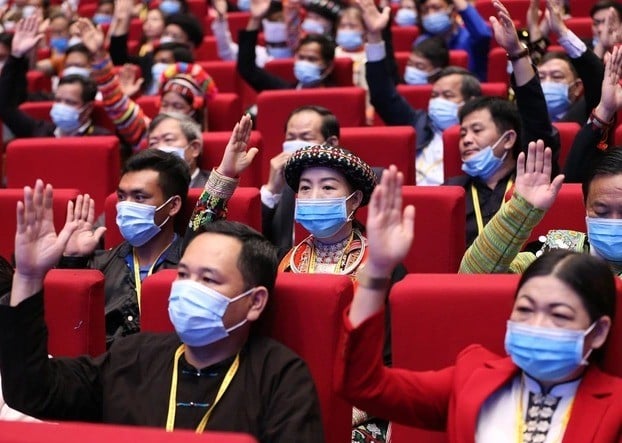 |
| Currently, a total of 52/54 ethnic groups have representatives participating in the National Assembly through the terms. (Source: VNA) |
In order to eliminate the educational gap, the State has implemented many policies to develop the education career for ethnic minorities in mountainous areas. For example, in remote areas, the State has policies to support exemption and reduction of tuition fees and study costs.
In addition, in order to ensure that ethnic groups have the right to use their language and writing, preserve their national identity, promote their fine customs, practices, traditions and culture, the State pays great attention to teaching and learning the language and writing, and preserving the culture of ethnic minorities.
Currently, the whole country officially implements teaching and learning of 6 ethnic minority languages (with programs and textbooks issued by the Ministry of Education and Training): Mong, Cham, Khmer, Jrai, Ba Na, E De in 23 provinces and cities nationwide with a scale of 715 schools, 4,812 classes, 113,231 students.
Thus, it can be concluded that Vietnam always respects and ensures the rights of ethnic minorities, especially since Vietnam joined the CERD Convention in 1982. Vietnam always strives to perfect the legal system, mobilize development resources to ensure equality, solidarity, and harmoniously resolve relations between ethnic groups, creating clear changes in the economic, cultural, and social development of ethnic minority areas.
In order to better implement its role as a member of the Convention, Vietnam commits to promoting propaganda, education, and raising awareness of the Convention throughout the country in general and in mountainous ethnic minority areas in particular. In addition, Vietnam strengthens international cooperation on the implementation of the Convention to share experiences in ensuring the rights of ethnic minorities and combating all forms of discrimination.
Source



![[Photo] Prime Minister Pham Minh Chinh receives Ambassador of the French Republic to Vietnam Olivier Brochet](https://vphoto.vietnam.vn/thumb/1200x675/vietnam/resource/IMAGE/2025/5/13/f5441496fa4a456abf47c8c747d2fe92)
![[Photo] President Luong Cuong attends the inauguration of the international container port in Hai Phong](https://vphoto.vietnam.vn/thumb/1200x675/vietnam/resource/IMAGE/2025/5/13/9544c01a03e241fdadb6f9708e1c0b65)
![[Photo] Prime Minister Pham Minh Chinh meets with US business representatives](https://vphoto.vietnam.vn/thumb/1200x675/vietnam/resource/IMAGE/2025/5/13/5bf2bff8977041adab2baf9944e547b5)







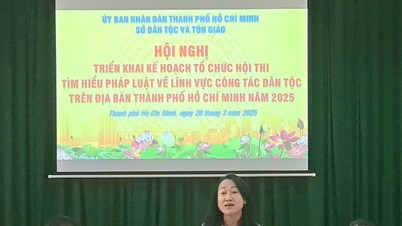


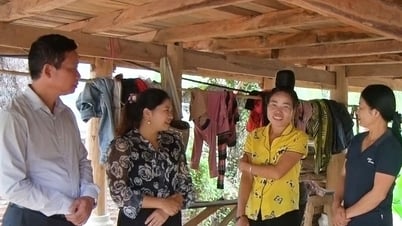

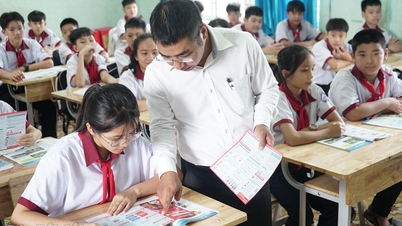








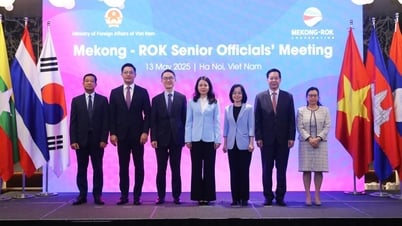





















































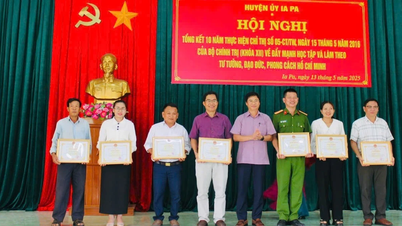



















Comment (0)